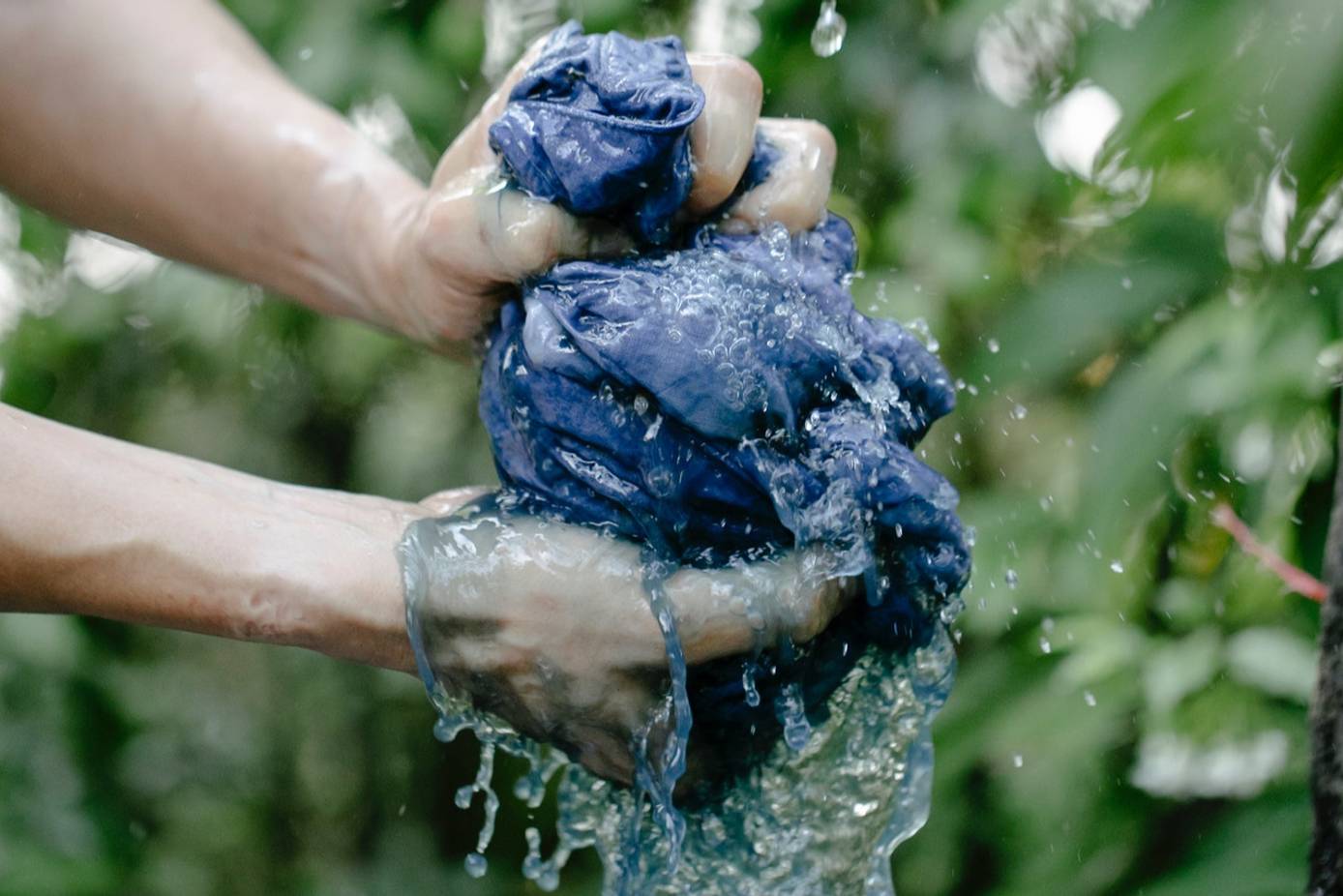
Its aim is to accelerate the shift from wet to mostly dry processing as textile processing is responsible for the highest greenhouse gas emissions, significant water and chemical use in the fashion value chain. Thus, the project brings together several innovations in textile pre-treatment and colouration that have the potential to reduce emissions by up to 89 percent, and to cut water consumption by between 83 and 95 percent. […]
The D(r)ye Factory of the Future joins brands and innovators
The D(r)ye Factory of the Future is orchestrated by Fashion for Good and partners with brands like Adidas, Kering, PVH Corp., Arvind Limited and Welspun India on the one hand who bring extensive expertise in the textiles space, and innovators like Alchemie Technologies, Deven Supercriticals, eCO2Dye, Grinp, Indigo Mill Designs, Imogo, Mtix and Stony Creek Colors on the other to bring together several novel technologies with the aim of disrupting the current processing, pre-treatment, colouration (dyeing and printing) and finishing of textiles in the fashion supply chain.
“Traditional pre-treatment, colouration and finishing, which occur in Tier 2 of the supply chain (see figure below) often takes place in large tanks or baths which require vast amounts of energy, heat and water. It produces the highest amount of Greenhouse Gas (GHG) emissions, 52 percent, in addition to releasing large amounts of toxins into the water. One of the key levers to reduce impact is to move from wet processes to mostly dry processes – innovative processing technologies that require very little to no water and reduced energy,” explains Fashion for Good.
Working together for greater impact
Unlike a number of innovations in this area that are often explored in isolation, the D(r)ye Factory of the Future project partners several innovations together to achieve a greater impact and accelerate the shift to more sustainable practices. In addition, after the initial focus on innovations in pre-treatment and colouration, it will test solutions in combination to validate their impact and potential to scale in the fashion value chain.
Concretely, the eight innovators will collaborate across five different materials; cotton, polyester, blends, denim and wool. The technologies tested include plasma and laser treatments, spray dyeing, supercritical carbon dioxide (CO2) and foam dyeing. “The results from the evaluations, as well as next steps for implementation, will be shared in a report in late 2022,” promises Fashion for Good. The initiative’s partners will help facilitate the implementation of the solutions found at selected manufacturers.
For those who would like to know more, Fashion for Good has compiled an accompanying overview of the technologies and their impact potential in the report “Textile Processing Guide: pre-treatment, colouration and finishing”, which can be found on its website.
